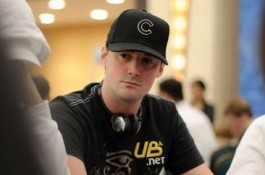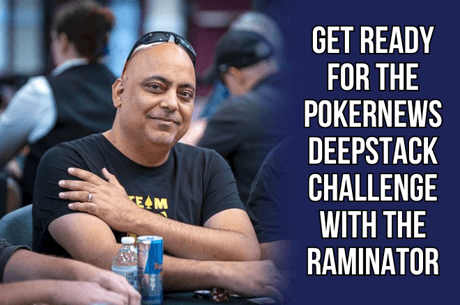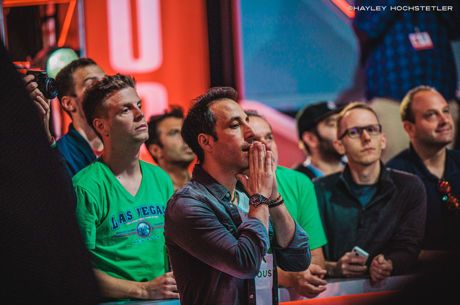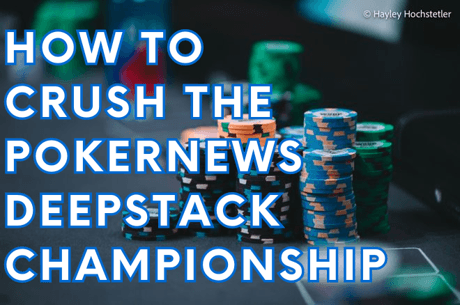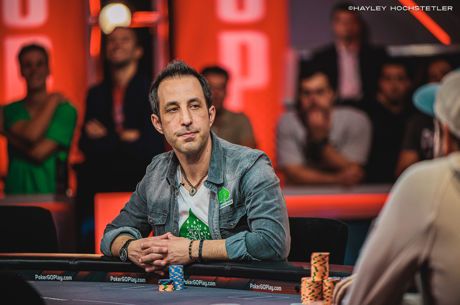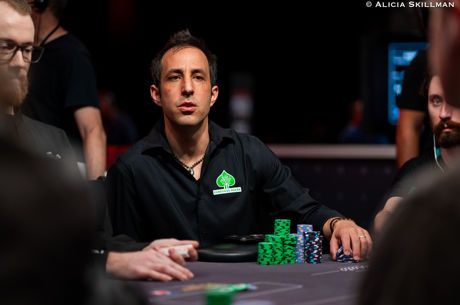Three-Handed Tournament Strategy with Eric Baldwin, Part 2

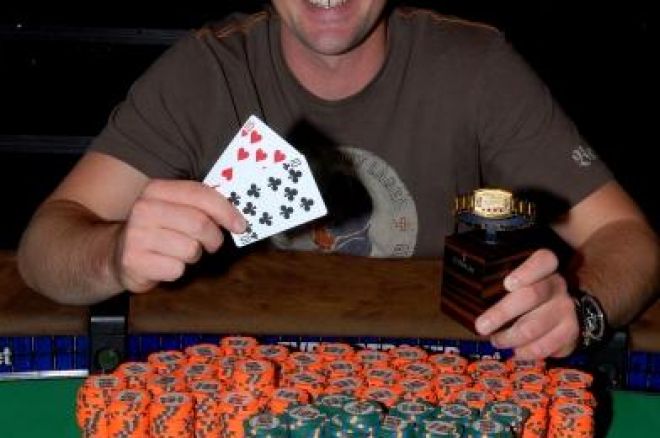
In part 1, Eric Baldwin answered questions about three-handed tournament strategy. For Part 2, he discusses how some of the concepts apply in a real hand. The following is a hand he played while three-handed in Event No. 34, a $1,500 buy-in no-limit hold’em tournament.
Players and Stack Sizes:
Jonas Klausen - 3.685 million - Button
James Taylor - 2.45 million - Small Blind
Eric Baldwin - 3.345 million - Big Blind
Blinds and Antes:
30,000-60,000 with a 5,000 ante
First off, what was the dynamic between you and the other opponents, and what did you think of Taylor, prior to this hand?
Both opponents were good, aggressive players. Three-handed, you have to get the chips from somewhere, and my plan was to apply pressure to Taylor. Klaussen had position on me for two out of three of the hands, and I think he was even more aggressive than Taylor.
Preflop: Klausen fold and Taylor raises to 180,000. Baldwin calls with ace-five. The pot is now 375,000.
So when Taylor raised into you from the small blind, can you explain your thought process with the hand you had, that led you to just call preflop?
He had been opening a fair amount from the small blind, so it's a bit weak to fold an ace. I felt like if I reraised, there was a decent chance Taylor would four-bet all-in, possibly getting me to fold the best hand. Thus, I decided to call and play a pot fairly deep stacked in position.
Flop: The flop comes 9♥9♠2♦. Taylor bets 235,000, and Baldwin calls. The pot is now 845,000.
Did you expect him to almost always continuation bet this type of board?
Yes. If he missed, this is a good board to continuation bet. If he has a pocket pair, he's happy to take down the pot while he likely has the best hand and avoid a bad turn card. This leaves me in a similar spot to where I was preflop. Since he's betting so often here, it's pretty weak to just give up with an ace. If I give up here, what was I calling for preflop? To connect big with the flop with ace-five?
The stacks were such that if I raised, I left the door open for him to make the all-in reraise. He's definitely capable of making this play as a bluff, so I just called. It also looks more likely that I have a nine by just calling.
Turn: The turn is the 4♥ and the board now reads 9♥9♠2♦4♥. Taylor bets 425,000. Baldwin goes all-in, and Taylor folds for his last 1.6 million in chips.
Why did you decide to make this play?
On the turn I picked up a gutshot wheel draw. Unless Taylor had pocket twos, pocket aces, or a 9, I had seven outs if I was behind and called. I felt like I could effectively represent a 9, pocket twos, or a big pair myself, and get him to fold a lot of hands. I also thought it was very possible he was firing a second barrel as a bluff. Unfortunately, he might have been bluffing with a better Ace, and by just calling I would give him the opportunity to bluff all-in on the river.
I elected to be the one getting the fold equity and make the raise all-in. I hadn't made any huge plays at the final table and had shown down good hands. This led me to believe there was a good chance I could get Taylor to lay down a hand as big as a middle pair.
You mentioned the gut-shot outs you picked up in case you were called. Do you think players make the mistake of bluffing with no pot equity if called? And would you have still made the move anyway on another blank card?
Having some pot equity if called makes the situation tons more profitable. However, there are some spots where it is so likely your opponent will fold that you don't need any pot equity for the bluff to be profitable. It's important to ask, “What hands could he call me with if I bluff here?” Then, look at the likelihood of him or her holding those hands based on their previous actions. I'm not 100 percent sure if I would have made the same play if another blank had hit the turn. Picking up those four outs definitely made it a lot easier to make the play. After what seemed like an eternity, Taylor folded what he later swore to be pocket queens.
So this all goes back to your biggest advice which is that you need to be able to make plays and reads, otherwise you'll drown in three-handed play?
Exactly. Three-handed play isn't pretty. Sometimes bold plays are necessary to put yourself in a position to win the tournament.
After this play, Baldwin took the chip lead three-handed and went on to win the tournament and his first bracelet. The top prize was nearly $522,000.
Be sure to follow us on Twitter for up-to-the-minute news.

